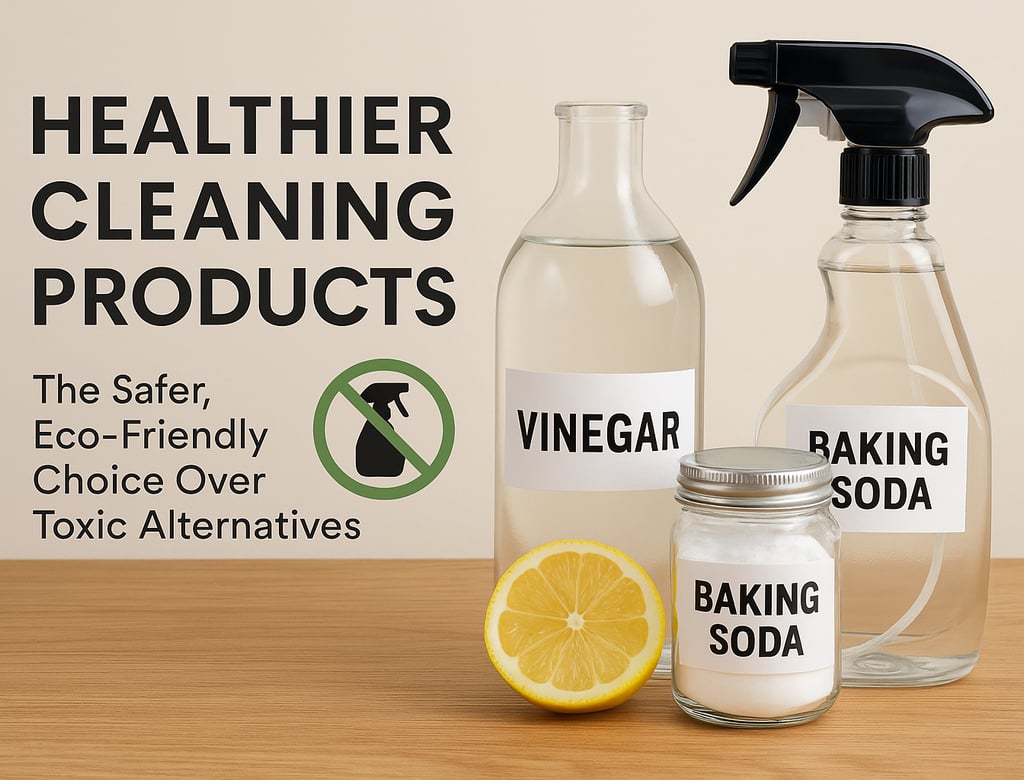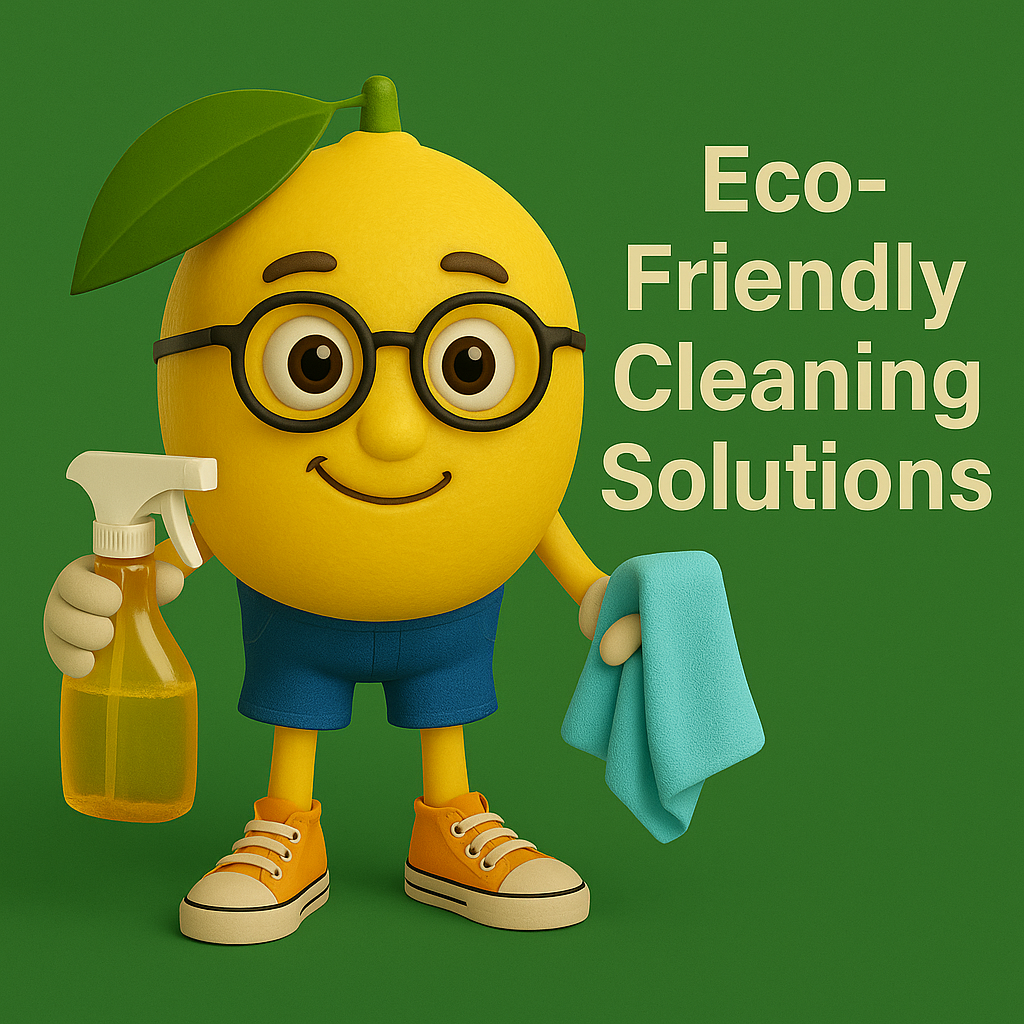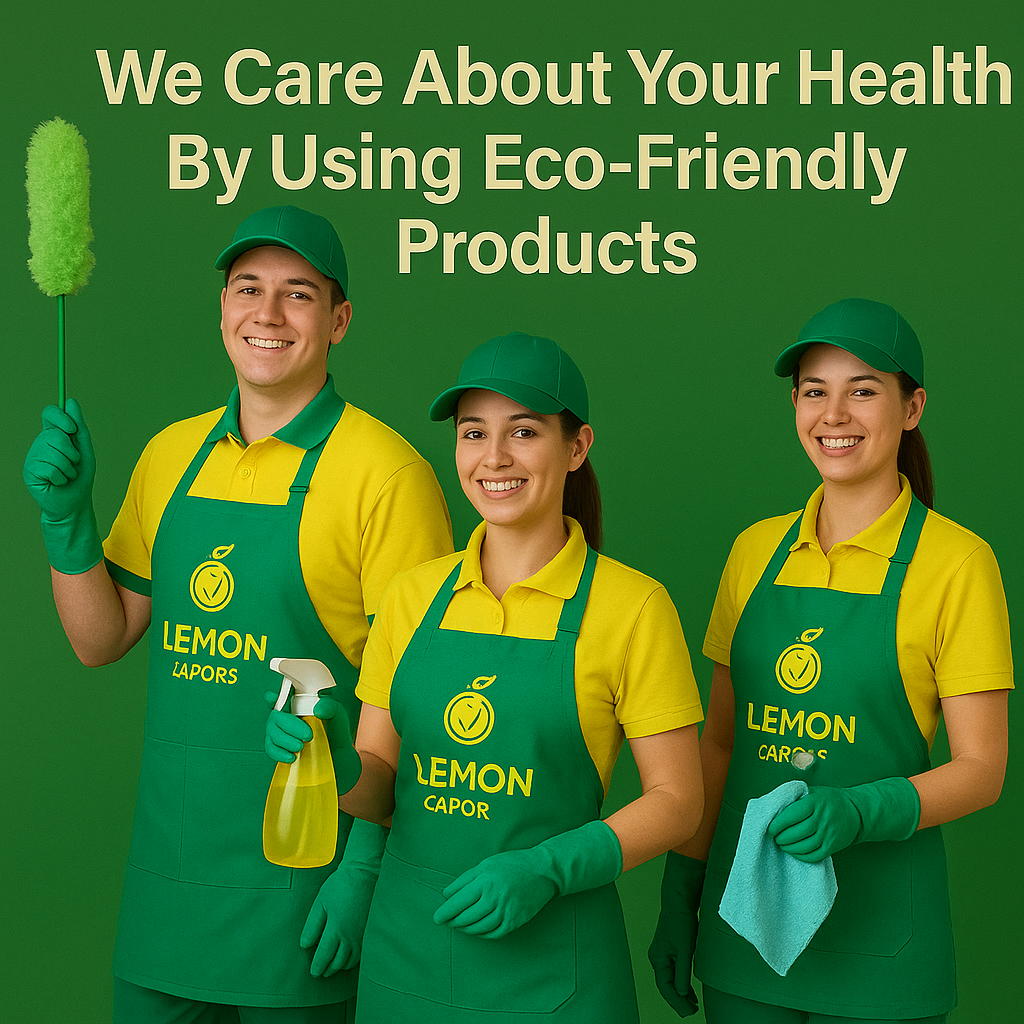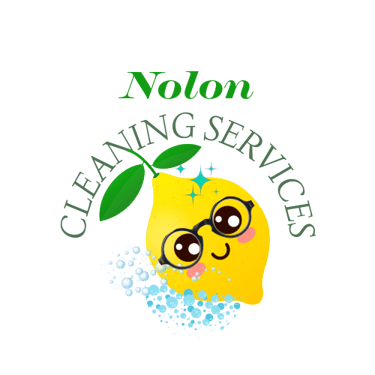Healthier Cleaning Products: How I Finally Broke Up with Bleach
You know that strong bleach smell? For years, I thought it was the smell of “clean.” Now? I avoid it like the plague.
PROFESSIONAL CLEANING
Nolon Cleaning
8/8/20253 min read


It Started in My Bathroom… on a Tuesday Afternoon
I was halfway through scrubbing the bathroom — radio on, coffee half-cold, bleach bottle in hand — when my eyes started stinging. My throat went dry, and I got that strange metallic taste you can’t quite shake.
By the next morning, I knew it wasn’t “just allergies.” It was my so-called cleaner.
The Dirty Truth About Conventional Cleaners
Under my sink was a little army of bottles promising “fresh scent” and “powerful clean.” But the fine print? That’s where I found:
Ammonia – great for streak-free glass, terrible for your lungs.
Chlorine bleach – kills germs but also wrecks indoor air quality.
Phthalates – fragrance additives that can mess with hormones.
Formaldehyde – yep, the same chemical used for preserving lab specimens.
The crazy part? These aren’t rare ingredients — they’re in so many products people buy without blinking.
It’s Not Just Your Health at Stake
When you rinse toxic cleaners away, they don’t vanish. They end up in Washington’s streams, Puget Sound, and even back into drinking water supplies.
The Washington State Department of Ecology has plenty to say about this (Safer Cleaning Guide – WA Ecology). Once you read it, you can’t unsee the impact.


What Makes a Cleaning Product “Healthier”?
For me, it means:
Biodegradable ingredients — so it breaks down naturally without polluting Washington’s waterways.
Plant-based formulas — coconut, corn, or sugarcane instead of petroleum.
No synthetic fragrances — “meadow breeze” isn’t from a meadow.
The Switch Was Worth It
Once I swapped to healthier cleaning products, I noticed:
No more coughing fits while mopping.
My dog stopped sneezing in the kitchen.
The air in my home actually smelled like nothing — which is what clean should be.
Local Stories, Real Change
A friend in Seattle runs a daycare. Staff used to complain about headaches until they switched to eco-friendly cleaning products.
Now? Headache-free.
Another family in Tacoma with two asthmatic kids saw fewer attacks after ditching chemical sprays.
Avoiding “Greenwashing” in Washington Stores
Not every product with a green leaf on the label is truly non-toxic.
Here’s my Washington-friendly checklist:
Check the ingredient list — and skip products that hide behind “fragrance.”
Look for certifications like EcoLogo, EPA Safer Choice, or Green Seal.
Use the EPA Safer Choice Product Finder for options you can buy locally.


DIY Recipes That Work (and Cost Pennies)
All-Purpose Spray: Equal parts vinegar and water with lemon juice — cuts through grime without the burn.
Glass Cleaner: Water + vinegar + one drop of castile soap.
Baking Soda Scrub: Perfect for sinks, tubs, and even coffee mugs.
If you’re in WA, you can find bulk refills of vinegar and castile soap at PCC Community Markets or Central Co-op in Seattle.
Is It More Expensive?
Sometimes the sticker price is higher, but I buy less, waste less, and feel better knowing I’m not sending chemicals into Puget Sound.
Bonus: my cleaning cabinet is no longer overflowing with half-empty bottles.
The Future of Green Cleaning in Washington
From refill stations at Seattle Zero Waste to compostable packaging trends, the shift toward safe cleaning alternatives is happening right here. You can even join Zero Waste Washington (zerowastewashington.org) to support local eco efforts.
Quick FAQs
Q: Are non-toxic cleaners septic safe in WA?
A: Most plant-based cleaners are fine for septic systems — check labels for confirmation.
Q: Can vinegar replace every cleaner?
A: It covers most, but keep a certified disinfectant on hand.
Q: Where can I buy eco-friendly products locally?
A: PCC Community Markets, Central Co-op, and some Fred Meyer and QFC stores stock EPA Safer Choice-certified options.
Final Thoughts
Switching to healthier cleaning products wasn’t about being trendy — it was about protecting my health, my dog, and my local environment. And in Washington State, every bottle you swap makes a difference to our streams, our salmon, and our air.
Connect
Get in touch for your cleaning needs today.
Support
Follow
206-737-3718
© 2025. All rights reserved.
